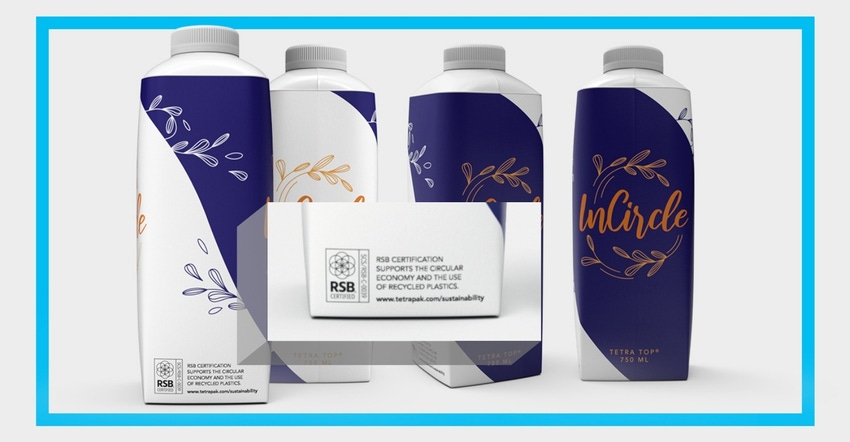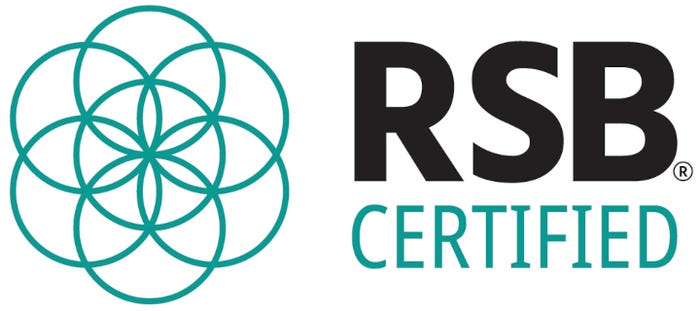There is positive movement in recycled-content materials certification. For example, the world’s largest food packaging company has received certification for recycled polymers, which it now uses in its carton packaging.

As more brands set goals for recycled content in packaging and include these goals in their corporate sustainability reports, being able to measure amounts and verify the source becomes critical. Here are two new developments:
1. Roundtable on Sustainable Biomaterials

Tetra Pak has become the first food and beverage packaging supplier to earn Roundtable on Sustainable Biomaterials (RSB) Advanced Products certification for recycled material. Tetra Pak is integrating certified recycled polymers into the caps, tops, and/or coatings of its carton packaging.
RSB’s Advanced Products Standard permits the mixing of RSB-certified material with virgin fossil material. The mass of “attributed recycled polymers” in the resulting plastic is tracked throughout Tetra Pak’s supply chain and verified by a third-party auditor.
Tetra Pak collaborated with global petrochemical manufacturer INEOS to create the first batch of attributed recycled polyethylene (PE). INEOS used an advanced recycling process from Plastic Energy to convert waste plastic into high-quality polymers. The resulting material purportedly features the same characteristics as virgin plastic.
With sustainability claims becoming more pervasive in the packaging industry, the availability of a trusted certification gives suppliers and brand owners a way to prove their efforts are legitimate.
Tetra Pak has pledged to incorporate at least 10% recycled plastic content, on average, into carton packages sold in Europe by 2025.
2. Recycled Material Standard

In a separate effort, environmental nonprofit GreenBlue has announced the development of a recycled-material certification program. The centerpiece of that project is the Recycled Material Standard (RMS), which establishes criteria for third-party certifications and enables chain-of-custody tracking.
“We believe the RMS has the power to transform supply chain transparency around the use of recycled materials, increase supply, and bring better visibility of recycled materials to consumers,” said Nina Goodrich, executive director of GreenBlue, in a February 2021 statement.
She added, “Ultimately brand owners need to demonstrate progress on their recycled content goals, and the RMS will be a critical tool in enabling that.”
About the Author(s)
You May Also Like




